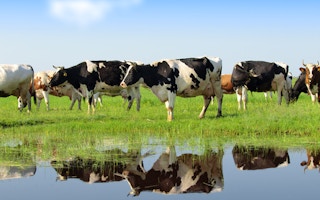Growth in agricultural productivity and expanding markets have made more food available to more people than ever before. The options available to the average consumer visiting a supermarket are richer and more varied than at any time in history. But this abundance comes at a cost to our health and the planet.
Obesity, diabetes, and hypertension are increasing significantly across the world, particularly in middle- and high-income countries. Meanwhile, food production is a major contributor to climate change: agriculture (excluding land use change) accounts for 11 per cent of global carbon emissions.
To achieve the Paris climate agreement’s emission reduction targets and try to limit global temperature increases to 2 degrees Celsius by 2100, nations will have to deploy creative new policies to limit carbon emissions on both the supply and demand sides.
A carbon tax on food, if done right, could help nations meet emission reduction targets while improving nutrition and public health. Researchers from the International Food Policy Research Institute and the Oxford Martin School recently modeled the potential consequences and tradeoffs of levying carbon taxes on food.
In all of the scenarios we explored, taxing the carbon content of foods increased prices and reduced consumption - ultimately reducing carbon emissions. Additionally, these reductions in consumption created positive health impacts by reducing overconsumption of foods, thereby reducing the risk of obesity and diabetes, among other diseases.
Some of the most carbon-intensive food products - like red meat - are also associated with coronary heart disease, stroke, cancer, and type 2 diabetes if eaten to excess. By making these types of foods disproportionately more expensive, a carbon tax can help further reduce the risk of these diseases. So a carbon tax not only reduces emissions, it leads to positive health outcomes through decreased consumption and healthier diets.
Our modeling suggests that fully taxing carbon in food could reduce food-related emissions in 2020 by 9 per cent, while helping to avoid more than 100,000 deaths worldwide in 2020.
“
Some of the most carbon-intensive food products - like red meat - are also associated with coronary heart disease, stroke, cancer, and type 2 diabetes if eaten to excess.
However, such taxes are not a universal fix. Our modeling showed that while high- and middle-income countries would realise clear health benefits, increasing food prices in lower-income countries would raise the number of people facing food insecurity, and could lead to 39,000 additional deaths.
These numbers suggest it will be necessary to fine-tune carbon taxes by country and by commodity, and provide income and price supports for low-income consumers to encourage consumption of healthier foods such as fruits and vegetables. This approach could achieve most of the emissions benefits of the full tax scenario, while also aiding public health, averting more than 500,000 deaths worldwide.
Increasing taxes won’t be politically popular, and in many countries purposely increasing food prices could be destabilising. Nevertheless, our consumption choices are having negative health impacts, and putting pressure on local and national health systems. Countries including Mexico and the United Kingdom, as well as Philadelphia, San Francisco, and other U.S. cities have imposed taxes on sugar in sodas. Modeling shows that such taxes can help reduce consumption with only limited effects on food security in developing countries.
If we do nothing, we will likely end up paying a high price anyway. Research shows that climate change itself could lead to price increases on par with the price increases modeled under our full tax scenario - and would lead to more than 500,000 climate-related deaths worldwide by 2050, comparable to the lives saved with a carbon tax.
Either way, the total bill will be cheaper if we start acting to reduce climate change now. Besides reducing carbon emissions and boosting public health, a carbon tax could spur innovation to reduce the carbon intensity of future food production, realizing more gains down the line. Taxing red meat and other carbon-intensive items has the potential to be a global win-win policy.
Daniel Mason-D’Croz is a scientist at the International Food Policy Research Institute; Keith Wiebe and Sherman Robinson are senior research fellows at the International Food Policy Research Institute. Their report is a part of the Global Futures and Strategic Foresight Program. This post is republished from the Thomson Reuters Foundation.









